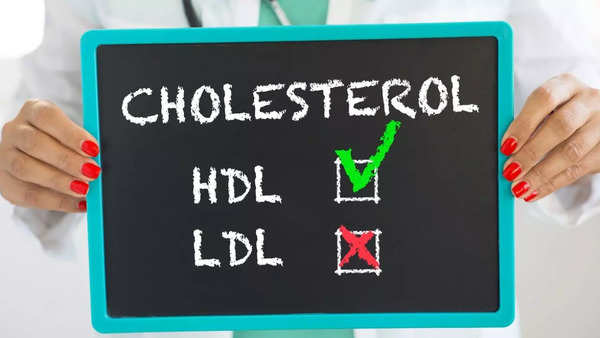Cholesterol is a dreaded terminology, partly because of the complications associated with it and partly because of the myths associated with it.
Cholesterol is one of the most misunderstood aspects of health and nutrition. For decades, it has been blamed for heart disease, strokes, and a host of other health problems. The common belief is that all cholesterol is bad and that avoiding high-cholesterol foods will keep your heart healthy. But is that really true?
It’s time to set the record straight and debunk certain myths around cholesterol so that it is understood properly and timely medical help is taken to make sure it doesn’t lead to complications:
Myth: Cholesterol is bad
One of the biggest misconceptions is that cholesterol is harmful. In reality, cholesterol is essential for our body. Our liver produces cholesterol because our body needs it for hormone production, vitamin D synthesis, and brain function.
The confusion surrounding cholesterol has led to many myths that cause unnecessary fear and poor dietary choices. Many people avoid eggs, dairy, and healthy fats due to misconceptions, while blindly following low-fat diets that may do more harm than good.
Myth: Eating fatty foods increases cholesterol
Modern research has shown that dietary cholesterol has little impact on blood cholesterol levels in most people. The body regulates cholesterol production—when you eat more cholesterol, your liver produces less, and vice versa.
For years, people were told to avoid eggs, shellfish, and dairy because they contain cholesterol. Instead of cutting out nutrient-rich foods, focus on a balanced diet with healthy fats, fiber, and protein.
Myth: High cholesterol is the only reason why you have heart disease
While high cholesterol can be a risk factor for heart disease, it’s not the sole cause. Many people with normal cholesterol levels still develop heart disease, while others with high cholesterol live long, healthy lives. Heart disease risk depends on multiple factors, including inflammation, genetics, diet, lifestyle, and overall health.
Instead of obsessing over cholesterol numbers alone, pay attention to markers like blood pressure, triglycerides, and insulin resistance.
Myth: Only overweight people have high cholesterol
Many assume that only overweight or unhealthy individuals suffer from high cholesterol, but that’s not true.

Thin or physically active people can also have high cholesterol due to genetic factors. A condition called familial hypercholesterolemia (FH) can cause naturally high cholesterol levels, regardless of body weight. This is why regular health checkups are important for everyone, not just those who appear overweight.
Myth: Only statins can lower cholesterol
Statins are commonly prescribed to lower cholesterol, but they are not the only solution. In some cases, statins are necessary, but they also come with potential side effects like muscle pain, liver damage, and cognitive issues.
Lifestyle changes such as eating fiber-rich foods, exercising regularly, reducing processed sugar intake, and managing stress can significantly improve cholesterol levels.
Myth: Egg yolk causes cholesterol
Egg yolks have been demonized for decades due to their cholesterol content. However, studies show that eggs do not significantly raise blood cholesterol levels in most people. They are packed with essential nutrients like choline, vitamin D, and protein. In fact, eggs can increase HDL (good cholesterol) and improve overall cholesterol balance.
The real culprits for high cholesterol are processed foods, trans fats, and excessive sugar consumption—not eggs.
Myth: Plant based diet can eliminate cholesterol
Many people believe that switching to a plant-based diet will eliminate cholesterol from their body. While plant foods do not contain cholesterol, our liver naturally produces cholesterol because it’s essential for survival.
A well-planned plant-based diet can be beneficial for heart health, but it’s still important to get enough healthy fats, protein, and essential nutrients to support overall cholesterol balance.
